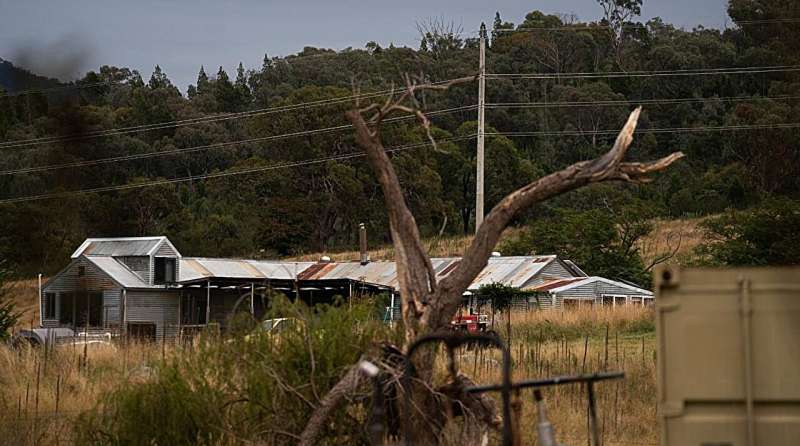This article has been reviewed according to Science X's editorial process and policies. Editors have highlighted the following attributes while ensuring the content's credibility:
fact-checked
peer-reviewed publication
trusted source
proofread
Remote Aussies don't have equal access to household electricity protections, shows study

Remote and Indigenous communities' power connections are more vulnerable compared to their regional and metropolitan counterparts, according to new research from The Australian National University (ANU) and the Tangentyere Research Hub in Alice Springs published in Nature Energy.
The research found 1 in 5 Aussies don't have equal access to household electricity protections.
The study of more than 3,000 settlements across the country found the Northern Territory and Western Australia have the largest number of settlements where residents don't have guaranteed access to certain legal protections that ensure they stay connected to core electricity services.
New South Wales had the highest number of residents who are fully covered under current legislative protections.
Lead researcher Dr. Lee White from ANU said, "20% of the population live in settlements where not all consumers have access to all five of the basic legislative protections we examined,"
"This includes people living in remote and in Indigenous communities."
The ANU researchers looked at five categories of legal protections for electricity services to determine which communities across Australia are disproportionately impacted.
These were: disconnection protections for life support customers (people who rely on medical equipment that needs electricity), rules for unplanned interruptions, mandatory electricity disconnection reporting, complaints process clarity and independence, and clear guidelines for rooftop solar connection.
The study found remote communities are 18% more likely to receive fewer than four of these five categories of legal protections compared to urban or regional communities, while Indigenous communities are 15% more likely to not have access to any of the five categories.
"Electricity is vital to many aspects of well-being, including keeping homes safe and comfortable and keeping foods and vital medicines, such as insulin, refrigerated," Dr. White said.
"This study shows there is room to improve electricity protections for all Australians, but especially those who have long been underserved because of regulatory difference."
Dr. White said in addition to not having the same level of legal protections to safeguard their access to electricity, households in remote communities also face an uphill battle to transition to clean energy sources such as rooftop solar.
"Under the current framework, remote communities in Australia face many hurdles trying to install solar at their properties, particularly when attempting to connect to the electricity grid," Dr. White said.
"For example, only 2 of the 631 Australian settlements where prepayment can operate have clearly outlined conditions for prepay customers to connect rooftop solar to their homes. Prepay customers in other settlements may simply be told that they can't connect their solar to the grid.
"Without grid connection, you can't sell excess solar, and you usually can't use that solar for your home's electricity either unless you go fully off-grid.
"Our paper suggests that those remote communities on whose lands are well-positioned to adopt the resources and infrastructures necessary to drive the clean energy transition are in many cases likely to be the same communities that will have their own energy needs neglected under current regulation.
"In Australia, disparities in electricity regulation will see remote and Indigenous communities approaching the clean energy transition from an uneven footing unless governments and regulators enact meaningful policy reforms."
The researchers are calling for the creation of a national database to actively monitor and measure levels of energy protections for households across the country.
In Australia, states and territories, not the federal government, have legal jurisdiction over electricity. The research authors argue there should be nationally consistent rules to prevent energy disconnections during periods of extreme hot and cold temperatures.
The researchers are also calling for nationwide mandatory electricity disconnection reporting.
"Connection to electricity is a primary concern for our town camp households in Alice Springs, particularly during the hot summer months and cold winters in central Australia," study co-author Michael Klerck, from the Tangentyere Research Hub, said.
"Many of these inequities will only become more apparent because of climate change. There needs to be a clear-eyed focus on reducing, or at least not entrenching, existing inequalities in this space."
More information: Lee V. White et al, Geographies of regulatory disparity underlying Australia's energy transition, Nature Energy (2024). DOI: 10.1038/s41560-023-01422-5















